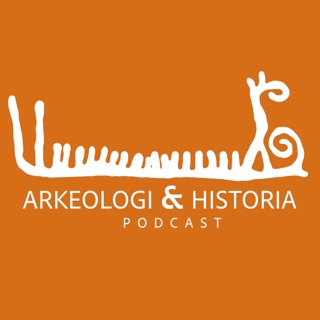
Memory, Love, & Science
What happens when memory disappears overnight? In this episode of Monday Science, Dr. Bahijja Raimi-Abraham explores the fascinating yet heartbreaking story of Nesh Pillay, whose life was upended by s...
17 Feb 202524min

Throwback Thursday: Love in the Metaverse
⚠️ Please note that this episode includes a trigger warning for discussions about consent, sexual assault, and sexual harassment.⚠️Join us as Dr. Raimi-Abraham speaks with Dr. Douglas Zytko, (an Assis...
13 Feb 202531min

Pandemics, Politics, and Power: The WHO Withdrawal Explained
🎙️Episode 191 – The U.S. Withdrawal from WHO: What It Means for Global HealthAfter a brief hiatus,Monday Science is back! In this episode, host Dr. Bahijja Raimi-Abraham shares updates on her secondm...
10 Feb 202513min

Why are yawns contagious?
In this Dr Bahijja Raimi-Abraham has taken a suggestion from a group of pharmacy students who are currently conducting their socialisation placement with Monday Science. The topic being ‘why are yawn...
22 Juli 202419min

Throwback Thursday - Why do people find true crime relaxing?
In this episode...Dr Bahijja is back talking about why do people find true crime relaxing. Episode photo by kat wilcox Thank you for listening! If you liked the episode, please give us a five-star ra...
18 Juli 202417min

The myth that we only use 10% of our brain is false!
In Part II of this conversation, Dr. Bahijja Raimi-Abraham interviews Professor Joseph Devlin (Joe) on various topics related to psychology and consumer behavior. They discuss Joe's research on the re...
15 Juli 202436min

Throwback Thursday - Why has there been an increase in ADHD diagnosis?
In this Throwback Thursday episode...Dr Bahijja is sharing her findings on why there has been an increase in ADHD diagnosis. Thank you for listening! If you liked the episode, please give us a five-st...
11 Juli 202429min

How can markers of masculinity influence consumer behavior?
In the first of two episodes, Dr. Bahijja Raimi-Abraham interviews Professor Joseph Devlin about his work in consumer neuroscience and neuromarketing. They discuss the importance of understanding cons...
8 Juli 202431min




















